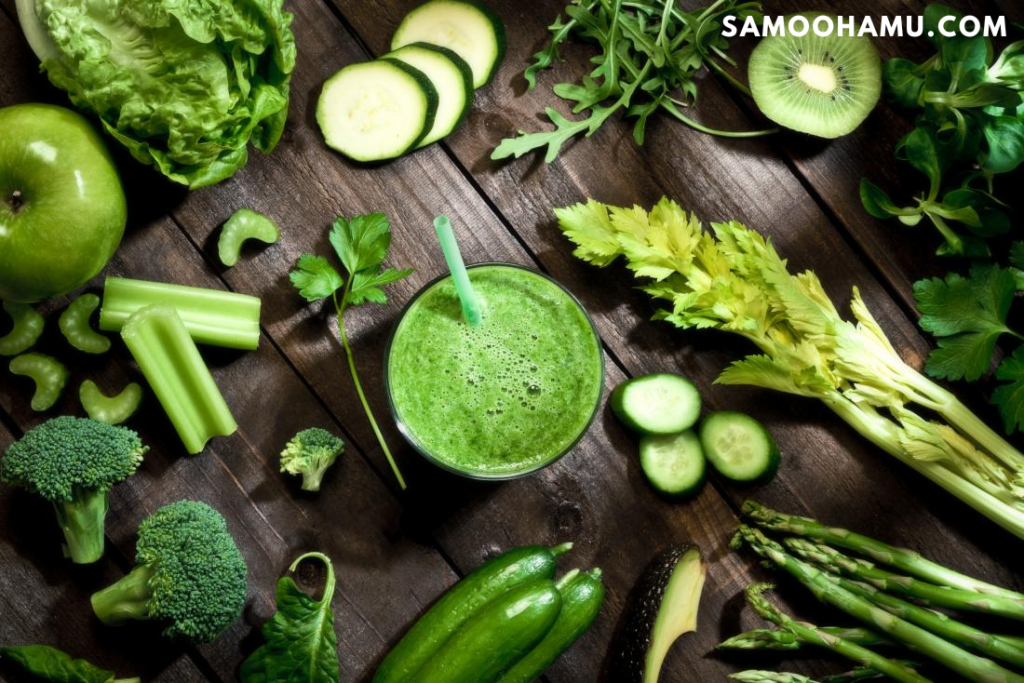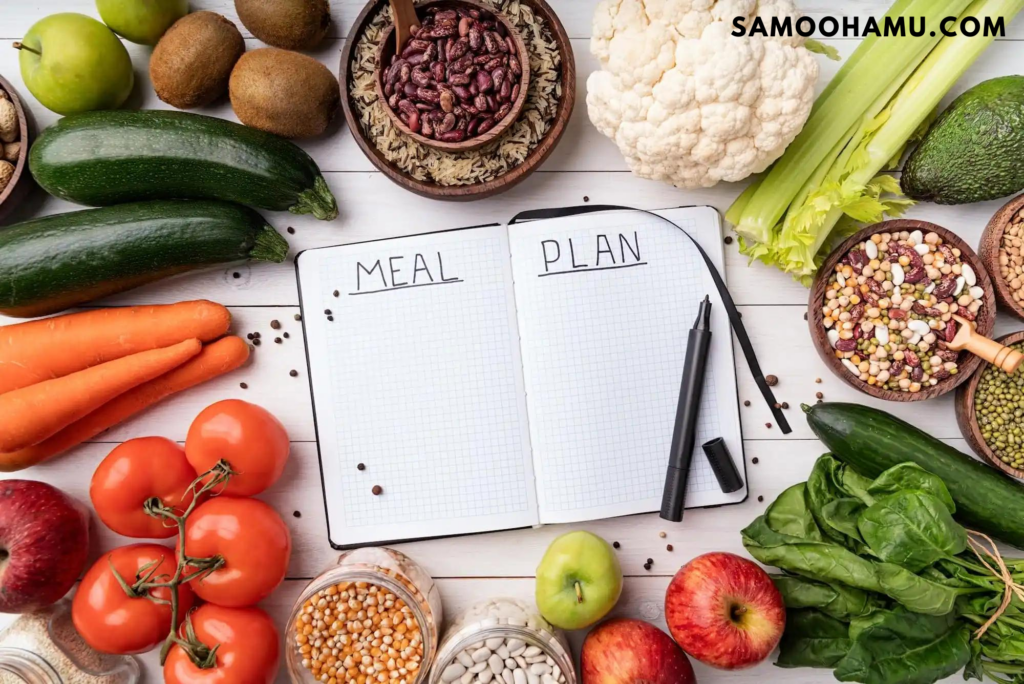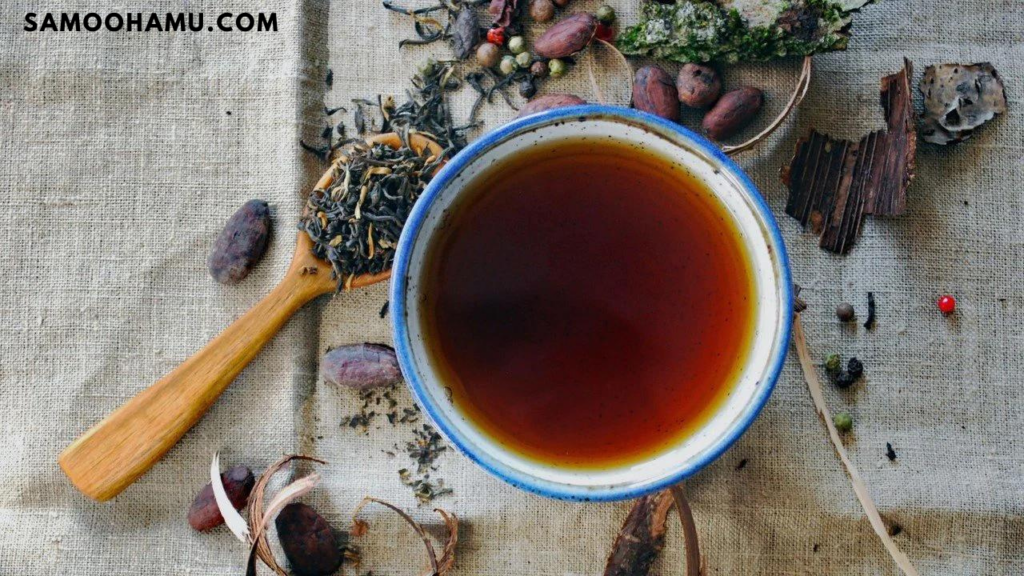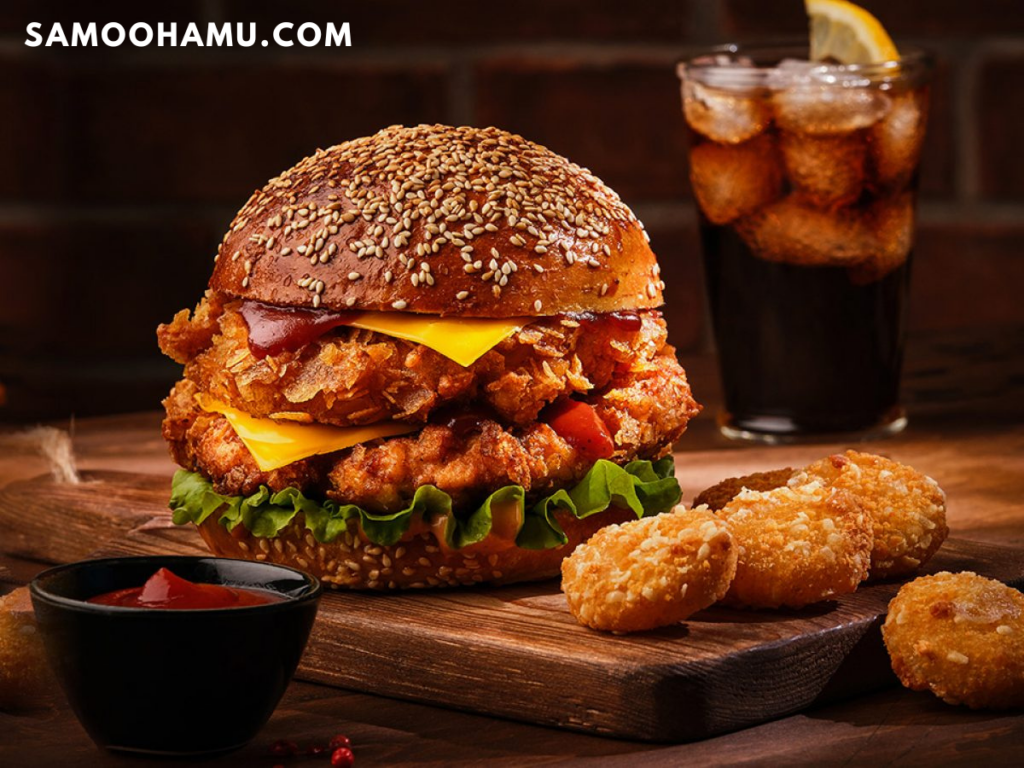Feeling a little too greasy after indulging in your favorite oily foods? We’ve all been there! Whether it was a plate of crispy fried chicken or a heaping mound of cheesy fries, sometimes we just can’t resist the allure of deliciously greasy goodness. But afterward, that heavy feeling and regret start to kick in. Don’t worry, we’ve got you covered!
In this blog post, we’ll share ten effective steps to help you feel better after consuming an abundance of oily food. From sipping on lukewarm water to incorporating digestive enzymes into your routine, these tips will have you back on track and feeling lighter in no time.
So sit back, relax (but not for too long!), and let’s dive into the ways you can recover from the effects of overindulging in oil-laden delights. Get ready to regain control and say goodbye to post-grease remorse – because with these ten steps at your disposal, feeling better is just around the corner!
1: Drink Lukewarm Water

After indulging in a greasy feast, your body may feel heavy and bloated. But don’t worry, there are ways to alleviate that regret! One of the easiest and most effective methods is to drink lukewarm water.
Why lukewarm water, you ask? Well, it helps to stimulate digestion and flush out toxins from your system. Plus, it’s gentle on your stomach and won’t shock your body like cold water might.
Sip on a glass of lukewarm water slowly after your meal. This will help to break down the oily residue in your digestive tract and promote better digestion. It can also relieve any discomfort or heartburn caused by excessive oil consumption.
Additionally, drinking lukewarm water throughout the day can keep you hydrated and support overall detoxification. So grab that glass of warm H2O and let it work its magic on your post-oily food woes!
Remember, prevention is key when it comes to overindulgence in oily foods. However, if you do slip up every now and then (we’re only human!), incorporating this simple habit into your routine can make all the difference in how you feel afterwards.
Stay tuned for more tips on recovering from oily food indulgences!
2: Have a Detox Drink

We’ve all been there – after indulging in oily and greasy foods, our bodies crave something refreshing and detoxifying. That’s where a good old detox drink comes to the rescue! Sip on this magical elixir and let it work its wonders.
First up, lemon water! This simple yet effective drink is packed with vitamin C, which helps boost your metabolism and aids in digestion. Squeeze half a lemon into warm water for an instant pick-me-up that will cleanse your system from within.
If you’re feeling fancy, why not try some infused water? Add slices of cucumber or fresh mint leaves to a jug of cold water for a refreshing twist. Not only does it taste amazing, but it also helps flush out toxins and reduce bloating.
Another popular option is green tea. Known for its antioxidant properties, green tea can help speed up your metabolism and aid in weight loss. Plus, it’s a great way to hydrate while giving your body the much-needed detoxification it craves.
If you’re looking for something more substantial, whip up a smoothie using ingredients like spinach, kale, ginger, and pineapple. These powerhouse ingredients are loaded with nutrients that will help reset your digestive system and leave you feeling revitalized.
Remember to sip on these detox drinks throughout the day to reap their full benefits. Hydrate yourself from within as you bid adieu to that heavy meal filled with regret!
Stay tuned for the next step on our journey towards post-oily food recovery!
3: Take a Walk

Feeling heavy and sluggish after indulging in too much oily food? Don’t worry, there’s a simple solution – take a walk! Walking is not only a great way to burn off those extra calories but also helps to aid digestion and improve overall well-being.
When you go for a stroll after eating, it stimulates the muscles in your abdomen, which can help to move along the digestion process. It also increases blood flow to your digestive organs, promoting better nutrient absorption and waste elimination.
Not only does walking have physical benefits, but it also has mental ones too. It can clear your mind and reduce stress levels, which might be elevated after overindulging. Plus, being outdoors in nature can boost your mood and provide an overall sense of well-being.
So lace up those sneakers and head outside for a brisk walk. Aim for at least 30 minutes of moderate-intensity exercise to reap the full benefits. You’ll feel lighter both physically and mentally!
4: Plan Your Next Meal

After indulging in a heavy, oily meal, it’s important to plan your next meal strategically. This will help you regain control over your eating habits and ensure that you nourish your body with healthy choices.
Start by considering lighter options for your next meal. Opt for grilled or baked dishes instead of fried ones. Incorporate plenty of fresh vegetables and lean proteins to balance out the oiliness from the previous meal.
Make sure to include foods that are high in fiber, such as whole grains and legumes. These will aid in digestion and keep you feeling satisfied without overloading on more oil.
Don’t forget about hydration! Include hydrating foods like watermelon, cucumbers, or herbal teas to flush out toxins from the excess oil consumption.
Don’t rush into another heavy meal right away. Give yourself some time to digest before diving into another feast. Listen to your body’s hunger cues and eat mindfully.
By planning your next meal thoughtfully after indulging in oily food, you’ll be setting yourself up for success and helping your body recover from the effects of excessive oil consumption.
5: Take Probiotics

Probiotics, the superheroes of gut health, can come to your rescue after a greasy food binge. These friendly bacteria work wonders in restoring balance to your digestive system and reducing inflammation caused by excessive oil consumption.
When you indulge in oily food, it disrupts the natural flora in your gut, leading to discomfort and bloating. Probiotics help replenish these beneficial bacteria, aiding digestion and promoting overall well-being.
You can find probiotics in various forms like yogurt, kefir, sauerkraut, kimchi, or as dietary supplements. Incorporating them into your post-oily meal routine might just be the game-changer you need.
By adding probiotics to your diet regularly (not just when you overindulge), you can maintain a healthy gut microbiome that supports optimal digestion and nutrient absorption.
Remember that not all probiotic strains are created equal. Look for high-quality products with diverse strains of beneficial bacteria for maximum effect.
So next time you’ve had one too many deep-fried delights or cheesy treats, reach for some probiotics to restore harmony within your digestive system and bounce back from that oily indulgence!
6: Consume More Fruits and Vegetables

When you’ve had a greasy, oily meal that leaves you feeling heavy and regretful, one of the best ways to recover is by incorporating more fruits and vegetables into your diet. These colorful powerhouses are packed with essential vitamins, minerals, and antioxidants that can help cleanse your system and aid in digestion.
Fruits like berries, citrus fruits, and apples are not only refreshing but also rich in fiber. Fiber plays a crucial role in regulating digestion and promoting bowel movements. So go ahead and grab an apple or toss some berries into your morning smoothie!
Vegetables such as leafy greens (spinach, kale) and cruciferous veggies (broccoli, cauliflower) are excellent choices too. They contain high levels of nutrients like vitamin C, which boosts immunity while aiding in detoxification. Plus, their fibrous nature promotes satiety without adding excess calories.
If you’re looking for a quick fix after indulging in oily food, try making a fresh salad with mixed greens or whip up a delicious vegetable stir-fry loaded with colorful peppers and zucchini.
Remember to aim for variety when choosing fruits and vegetables to maximize their nutritional benefits. Don’t be afraid to experiment with different combinations – your taste buds will thank you!
7: Get Adequate Sleep

We all know how important sleep is for our overall health and well-being. But did you know that getting enough sleep can also help your body recover from the effects of indulging in oily food? When you’re asleep, your body goes into repair mode, working hard to restore and rejuvenate itself.
So after a heavy meal filled with greasy goodness, make sure to prioritize getting adequate sleep. Aim for at least 7-8 hours of uninterrupted rest each night. This will give your body the time it needs to digest and process the excess oil consumed.
When you’re well-rested, your metabolism functions optimally, allowing your body to efficiently break down and eliminate any lingering grease. Plus, quality sleep helps regulate hormones that control appetite and cravings – so you’ll be less likely to reach for another oily snack the next day!
To ensure a good night’s sleep, create a relaxing bedtime routine. Disconnect from electronic devices an hour before bed and dim the lights in your bedroom. Consider incorporating calming activities like reading or taking a warm bath into your evening ritual.
Remember, while it may be tempting to stay up late binge-watching your favorite show after overindulging in oily food – prioritizing rest is key! Give yourself permission to recharge and let your body do its magic while you catch some ZZZs.
Getting enough shut-eye not only aids digestion but also supports overall wellness by boosting immune function and reducing stress levels. So turn off Netflix early tonight – trust me; tomorrow you’ll wake up feeling refreshed and ready to conquer the world (or at least avoid those regretful feelings)!
8: Try Digestive Bitters

If you’re feeling weighed down by that greasy meal you just devoured, digestive bitters might be your saving grace! These potent elixirs have been used for centuries to support digestion and soothe an upset stomach. So, what exactly are digestive bitters?
Digestive bitters are herbal extracts that stimulate the production of digestive juices in your body, helping to break down fats and ease any discomfort caused by a heavy oil-laden meal. They typically contain bitter-tasting herbs like dandelion root, gentian, or artichoke leaf.
To reap the benefits of these magical potions, simply take a few drops before or after your oily feast. The bitter taste may not be everyone’s cup of tea (pun intended), but trust me when I say it’s worth it!
When consumed regularly, digestive bitters can help improve overall digestion and prevent that post-oily-food regret. They work wonders in supporting liver function too!
So next time you find yourself reaching for those oily delights, don’t forget to have a bottle of digestive bitters on hand. Your belly will thank you later!
9: Use Digestive Enzymes

When you’ve indulged in a greasy feast, your body might struggle to break down all that oil. That’s where digestive enzymes come in handy! These natural substances help your body efficiently digest fats and prevent any discomfort or bloating.
Digestive enzymes are available in supplement form at most health stores. Look for those that contain lipase, an enzyme specifically designed to break down dietary fat. Taking these supplements can give your digestion the extra boost it needs to process oily foods more effectively.
To use digestive enzymes, simply follow the instructions on the packaging. Typically, you’ll take one or two capsules with meals containing high amounts of fat. The enzymes will work their magic by breaking down the oil molecules into smaller, more manageable components that your body can easily absorb.
Remember, using digestive enzymes should be seen as a temporary solution rather than a long-term fix. It’s best to focus on maintaining a balanced diet and making healthier food choices overall. However, when you find yourself regretting that extra plate of fries or deep-fried delicacies, adding some digestive enzyme support can make all the difference!
So next time you overindulge in oily delights and feel the consequences weighing heavily on your stomach, reach for some digestive enzyme supplements and let them do their job! Your tummy will thank you later!
10: Consider Magnesium

When it comes to recovering from indulging in oily food, one mineral that can work wonders is magnesium. Known for its ability to support digestion and regulate bowel movements, magnesium can help alleviate the discomfort caused by excessive oil consumption.
Magnesium acts as a natural laxative, promoting healthy bowel movements and preventing constipation. It helps relax the muscles of the digestive tract, allowing for smoother digestion and reducing bloating or cramping. This essential mineral also aids in neutralizing stomach acid, which can be especially helpful after a heavy meal.
To incorporate more magnesium into your diet, you have several options. First, opt for foods rich in this mineral like spinach, almonds, bananas, avocados, and dark chocolate. You can also consider taking a magnesium supplement under the guidance of a healthcare professional.
Remember that moderation is key when it comes to any dietary supplements. Always consult with your doctor before starting any new regimen to ensure it’s safe for you.
By considering magnesium as part of your recovery plan after indulging in oily food, you’ll be giving your body an extra boost towards feeling better and getting back on track!
What Not to Do After Eating Oily Food

After indulging in a greasy feast, it’s crucial to know what not to do in order to avoid feeling even worse. Here are a few things you should steer clear of after eating oily food:
First and foremost, resist the urge to lie down immediately after your meal. This can lead to acid reflux and heartburn as the oil from the food may flow back into your esophagus. Instead, try sitting upright or going for a gentle walk.
Avoid consuming carbonated drinks or alcohol right after an oily meal. These beverages can increase bloating and discomfort by adding gas to your already full stomach.
While it might be tempting, don’t reach for that cup of coffee just yet! Caffeine can stimulate gastric acid production, which may worsen indigestion and upset stomach.
It’s important not to skip meals following an oily feast. Your body needs regular nourishment and depriving yourself of nutrients will only make matters worse. Stick with light meals that are easier on the digestive system.
If you’re prone to snacking before bedtime, try your best not indulge in this habit after eating oily food. Late-night snacks can disrupt digestion and interfere with sleep quality.
Avoid overeating during subsequent meals as a way of compensating for the excess oil intake earlier. This will only put more strain on your digestive system and potentially lead to further discomfort.
By avoiding these common mistakes post-oily feast, you’ll give your body a better chance at recovering smoothly without any added regrets!
Conclusion
So, you’ve indulged in a little too much oily food and now you’re feeling the regret. Don’t worry, we’ve got your back! By following these 10 steps to recover from the effects of overindulgence, you’ll be feeling better in no time.
Remember to start by drinking lukewarm water to help flush out toxins from your system. This simple step can do wonders for your digestion and overall well-being. Additionally, incorporating a detox drink into your routine will further aid in cleansing your body.
Getting some exercise is another great way to bounce back after eating oily food. Taking a walk not only helps with digestion but also boosts your metabolism and gets those endorphins flowing.
Planning your next meal mindfully is crucial when trying to recover from indulging in oily food. Opt for lighter options that are rich in fiber and nutrients to give your digestive system a break.
Probiotics are also an excellent addition to counteract the effects of excessive oil consumption. These beneficial bacteria promote healthy gut flora and aid in digestion.
Fruits and vegetables should become staples in your post-oily-food recovery plan as they provide essential vitamins, minerals, and antioxidants that support overall health.
Adequate sleep plays a vital role in restoring balance within our bodies. Make sure you prioritize getting enough restorative sleep each night for optimal recovery.
Digestive bitters are herbal remedies that stimulate digestion by enhancing bile production and promoting enzyme activity. Adding them to meals or taking them before eating can significantly improve digestion after consuming oily foods.
If necessary, consider using digestive enzymes supplements which help break down fats more efficiently during digestion, reducing discomfort caused by excess oil intake.
Don’t forget about magnesium! This essential mineral aids in muscle relaxation and supports proper bowel function – both of which can help alleviate any bloating or discomfort caused by oily foods.
While it’s important to know what steps to take after consuming oily food, it’s equally important to know what not to do. Avoid lying




